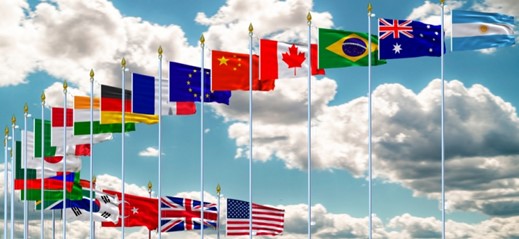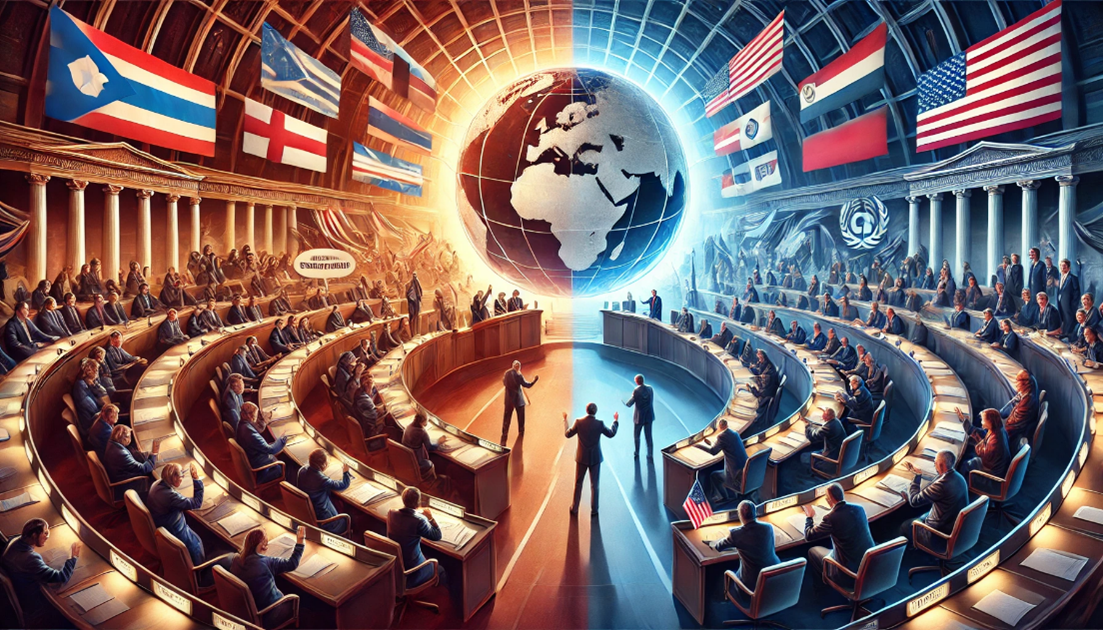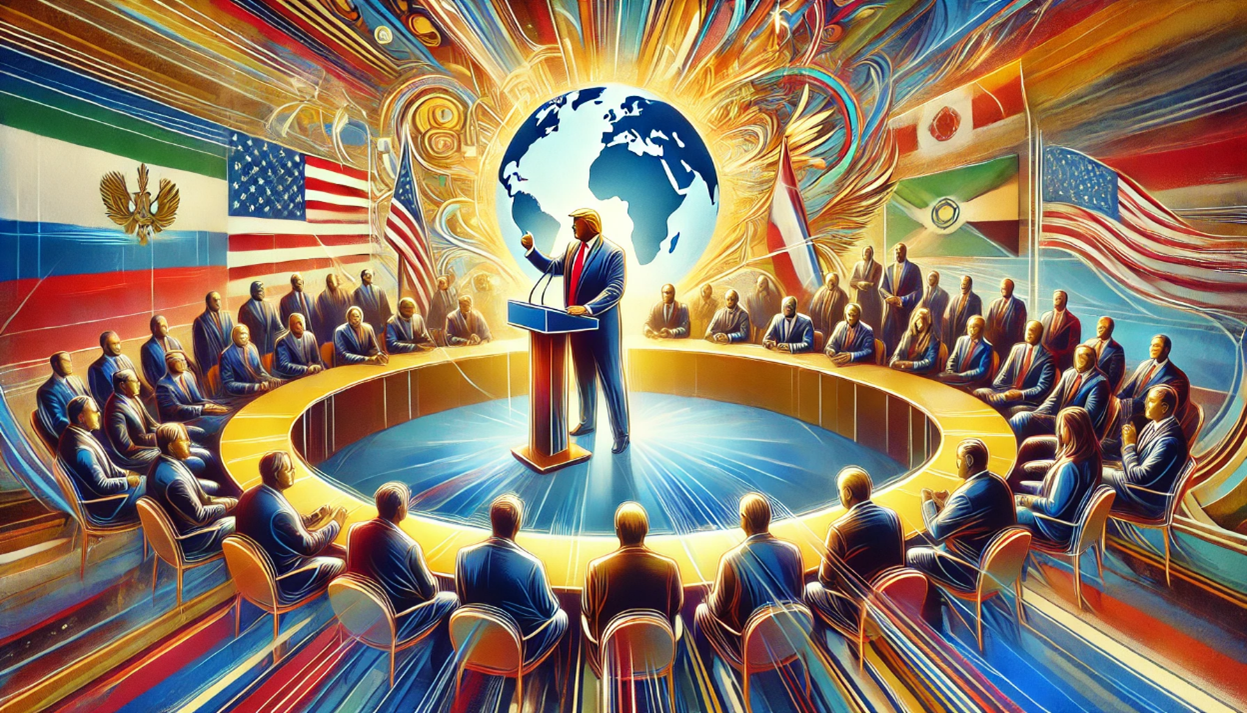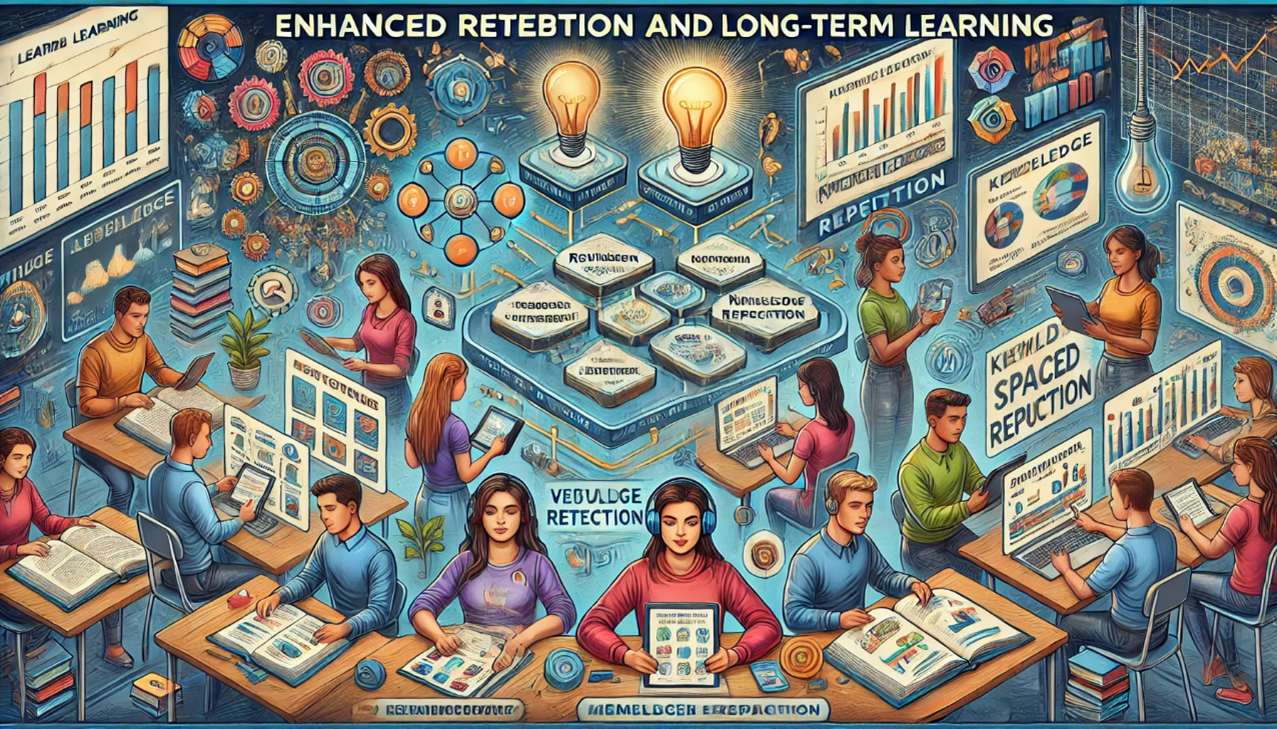How do populist leaders impact foreign relations and global cooperation?

How do populist leaders impact foreign relations and global cooperation?
by Maximilian 03:46pm Jan 02, 2025

Populist leaders can significantly impact foreign relations and global cooperation, often reshaping their country's role on the international stage. Their approach typically emphasizes nationalism, sovereignty, and a rejection of global norms, which can lead to both short-term and long-term consequences for global governance. Here’s an analysis of how populist leaders influence foreign relations:
1. Prioritization of National Sovereignty
"America First"-Style Policies: Populist leaders often adopt policies that prioritize national interests over international commitments, emphasizing sovereignty and self-reliance.
Withdrawal from Agreements: Many populist leaders withdraw from or renegotiate international treaties and agreements, such as trade deals, climate accords, or security pacts, arguing these are unfair or detrimental to their nations.
Impact: This undermines multilateralism and weakens the ability of international institutions to address global challenges like climate change, pandemics, or security threats.

2. Strained Alliances
Unpredictable Behavior: Populists’ rhetoric and actions can create uncertainty among allies, straining traditional alliances and partnerships.
Transactional Diplomacy: Populist leaders often favor transactional relationships based on short-term gains, rather than long-term strategic cooperation.
Undermining Trust: Disparaging remarks about allies or unilateral decisions (e.g., sudden troop withdrawals or trade tariffs) can erode trust.
Impact: Long-standing alliances, such as NATO or regional partnerships, may become less effective or cohesive.
3. Rise of Bilateralism Over Multilateralism
Focus on One-on-One Deals: Populist leaders often prefer bilateral agreements, viewing multilateral institutions as bureaucratic and disadvantageous.
Weakened Global Governance: This shift can undermine organizations like the United Nations, World Trade Organization, or World Health Organization.
Impact: Global challenges that require collective action, such as climate change or global health crises, become harder to address.

4. Escalation of Nationalist Rhetoric
"Us vs.Them" Mentality: Populist leaders often frame foreign relations in terms of conflict or competition, emphasizing national identity and portraying other nations as threats.
Trade Wars and Protectionism: Populists frequently adopt protectionist trade policies, leading to economic tensions and retaliatory measures.
Impact: This rhetoric and policy approach can heighten geopolitical tensions and contribute to a fragmented global economy.
5. Alignment with Other Populist or Authoritarian Leaders
Strategic Partnerships: Populist leaders may form alliances with like-minded leaders who share nationalist or anti-globalist ideologies.
Support for Illiberal Governance: Populist leaders may undermine democratic norms by aligning with authoritarian regimes, often citing pragmatism or mutual respect for sovereignty.
Impact: This can embolden authoritarian regimes and erode the global commitment to democracy and human rights.
6. Domestic Rhetoric Impacting Foreign Policy
Anti-Immigration Policies: Populist leaders often link immigration to security and economic threats, resulting in stricter border controls and less openness to refugees or migrants.
Distrust of Global Elites: Populists frequently target international elites or organizations (e.g., the EU, IMF) as out of touch with ordinary citizens.
Impact: Policies driven by populist domestic rhetoric can alienate other countries and reduce the effectiveness of international collaborations.

7. Resistance to Climate and Environmental Cooperation
Rejection of Climate Agreements: Populist leaders often downplay or dismiss climate science, withdrawing from or undermining international agreements like the Paris Climate Accord.
Focus on Economic Growth: They prioritize short-term economic gains over environmental sustainability, favoring fossil fuels or deregulation.
Impact: This resistance hampers global efforts to combat climate change and weakens collective environmental initiatives.
8. Disruption of Regional Stability
Fueling Regional Tensions: Populist leaders may stoke regional conflicts by taking hardline stances on territorial disputes or historical grievances.
Proxy Conflicts: Their policies can exacerbate tensions in volatile regions, increasing the risk of proxy wars.
Impact: Regional instability can spill over, affecting global security and economic systems.
Potential Benefits of Populist Leadership in Foreign Relations
While the risks are significant, populist leaders can also bring some positive effects:
Challenge to Stagnant Norms: Populists may question outdated global structures or agreements, prompting reform.
Focus on Accountability: By criticizing international institutions, they can push for greater transparency and efficiency.
Rebalancing Power: Populist policies may force stronger states or blocs to address the grievances of nations that feel marginalized in the global system.

Conclusion
Populist leaders fundamentally reshape foreign relations and global cooperation by prioritizing national sovereignty, adopting nationalist rhetoric, and often rejecting multilateralism. While their approach can highlight legitimate grievances and spur necessary reforms, it also risks eroding trust, increasing geopolitical tensions, and weakening global governance. The long-term impact depends on whether populist movements evolve into a constructive force or further fragment the international order.






